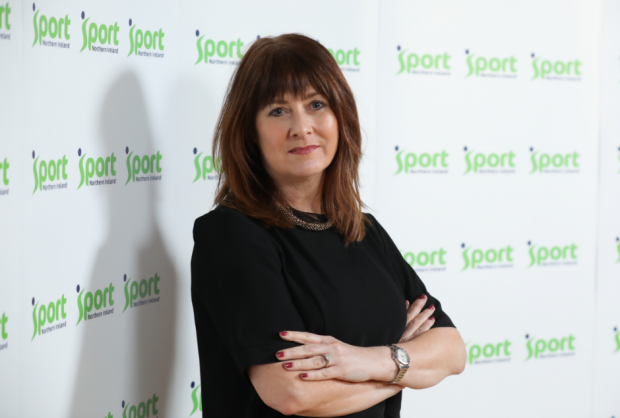Sport is often known to many people as a place where normal problems of the “real” world cease to exist and the playing field is levelled. However, we know this not to be true as sport had not escaped the racism that permeates our society.
The murder of George Floyd in Minneapolis back in May and the response from the Black Lives Matter (BLM) campaign has brought the ugly reality of racism centre stage on a global scale, reminding us of its traumatic impact on people’s lives.
As a leader of an organisation providing leadership to the sports sector, I do want Sport NI to show up to this debate and be counted as expecting a new normal where racism is regarded as the enemy until and long after it no longer exists.
Racism stems from the same prejudice and fear that create the other “isms” that pervade our communities globally and locally. Sport has certainly not escaped and is of course reflective of the racism within our society. There have been a range of campaigns to eradicate racism in sport in the UK, however there is recognition that many have not gone far enough or deep enough to affect the required change. Many of our sporting heroes have had to fight this battle themselves and use their individual power to bring attention to the issue.
However, that changed this week as the five Sports Councils across the UK announced joint work to stamp out racism in sport. (LINK to PRESS REEASE HERE). Sport NI is proud to stand with our sports councils’ colleagues in a shared commitment to systemic change that is largely informed by the Black, Asian and Minority Ethnic community members’ own experiences of sport and what they feel can be done to bring about that change.
Racism in sport is a reflection of racism in society and those of us in leadership positions in sport recognise that we have much more to do to tackle it; from discrimination in selection of athletes; the absence of Black, Asian and Minority Ethnic coaches, managers, administrators relative to their huge numbers as athletes and players; and a stereotypical view that the success of the Black athlete or player is often attributed to their physicality while the success of their whites colleagues is equated with dedication, intelligence and qualities of character.
NI is no stranger to the power of sport; in NI we have learnt from that other “ism”; sectarianism, that sport can heal, unite and build trust across communities and groups. We have shown some progress in tacking sectarianism and it is past time that we use the lessons learnt to address racism. The argument for doing less in Northern Ireland is often that we have such a small minority ethnic population here, however for members of that population, their difference is all the more visible, all the more stark due to its small size ; equality is not a poll or a numbers game and one individual experiencing inequality on the basis of his or her identity is one person too many.
Sport NI has also looked inward and asked if we have done enough as an organisation to reflect our society; we want to ensure that we are reflecting the leadership we have a duty to provide and that the mirror we hold up to ourselves is what we want to see across sport.
It is accepted that addressing racism in sport is something that will not be achieved quickly and will require long term systemic change from many people and organisations in the sporting system, including our own. However, the five sports councils remain clear that we want to see real progress very soon and that the initiative we announced this week supports rather than hinders that. I will provide regular updates to you on that progress.
In Sport NI we are committed to stamping out the “isms” that serve us so badly, acknowledging that sectarianism is sexism is racism is homophobia, is classism. We recognise that action taken or not taken which dehumanises one of us, diminishes all of us as a people and as a society. And that’s why we stand firm in stamping out institutionalised racism and structural inequalities.
Sport will not solve racism in our society and it should not be expected to do so but it can make a significant contribution to breaking down barriers in our communities so that we can build a better future for our children. Black Lives Matter has simply reminded us of what we already know about racism. The new normal post Covid-19 provides us with an opportunity to address inequalities in all their forms.
Let’s take this opportunity to build a Northern Ireland that stands up to be counted in targeting racism as the enemy. That’s what Sport NI aims to do.





